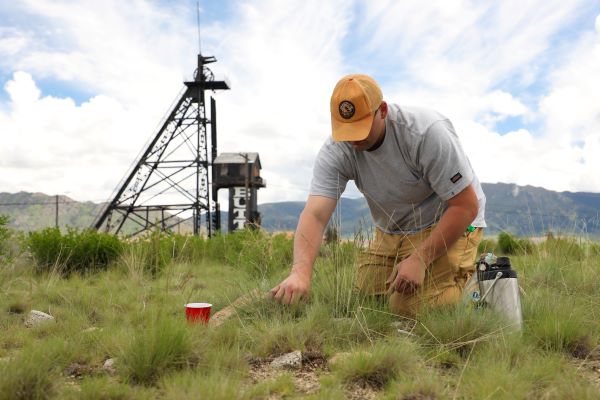Montana Technological University to partner with Northwestern University as part of new NSF-funded global center that will develop minerals supply chain

Montana Technological University researchers will partner with Northwestern University and other agencies from Australia, Chile, and Mexico to help build a sustainable international minerals supply chain as part of a new global center funded by the National Science Foundation.
Sustainable, Resilient, Responsible Global Minerals Supply Chain (SuReMin) is an international collaboration led by Northwestern University. Partners include Montana Technological University; Pontificia Universidad Católica de Chile; the Sustainable Minerals Institute (SMI) – an entity of the University of Queensland (Australia) located in Santiago, Chile; the Universidad de los Andes, and the Universidad Iberoamericana (Mexico). SuReMin will conduct research and develop educational opportunities to guide the development of a sustainable international minerals supply chain, a pressing challenge due to the increasing demand for useful and usable research that can inform and strengthen decarbonization at the scale and pace required to address climate change. This new center based at Northwestern University will be managed in conjunction with the Montana Tech Center for Environmental Remediation and Assessment.
“Complementing world experts that analyze the economics and environmental impact of a transition to clean energy, Tech will bring to this project its first-hand expertise of the environmental impacts of mining and potential for metal recovery from mining waste,” Vice Chancellor for Research Dr. Angela Lueking said. “The first stage of this project will provide an exciting opportunity for Tech students to attend planned international workshops with an exciting cadre of world partners. We are excited on how this collaboration with Northwestern University and its partners will position Tech to leverage its mining heritage to inform clean energy goals on a world stage.”
The design phase will entail developing a research agenda for managing, reusing, and disposing of mining waste, community-engaged social and environmental life cycle assessment of minerals mining, and low-cost, scalable methods for environmental and social data collection. Each partner institution will combine their perspective to create important research while also training future engineers to think globally.
“Inclusion of SuReMin’s international partners is notable because voices from the Global South — including Chile and Mexico — are underrepresented in sustainable mining research, despite this region contributing over 35 million metric tons of critical minerals for lithium-ion batteries alone annually,” said Jennifer Dunn, primary investigator and professor of chemical and biological engineering at the McCormick School of Engineering and director of Northwestern Engineering’s Center for Engineering Sustainability and Resilience.
SuReMin’s design phase goal is to establish an integrated research team and identify a clear pathway toward a future global center by exploring and refining research, education, and broadening participation activities. SuReMin will also host three workshops to develop its research agenda and curate a group of data sources to quantify social and environmental effects of mining in Chile and the US. Through pilot projects, SuReMin will contribute a new, community-engaged life cycle analysis for a copper or lithium mining community in Chile, a low computational-cost platform to screen potentially problematic tailing dam infrastructure, and new methods to recover metals from mining leachates with minimal chemical and energy requirements.
“NSF builds capacity and advances its priorities through these centers of research excellence by uniting diverse teams from around the world,” NSF Director Sethuraman Panchanathan said. “Global Centers will sync talent across the globe to generate the discoveries and solutions needed to empower resilient communities everywhere.”